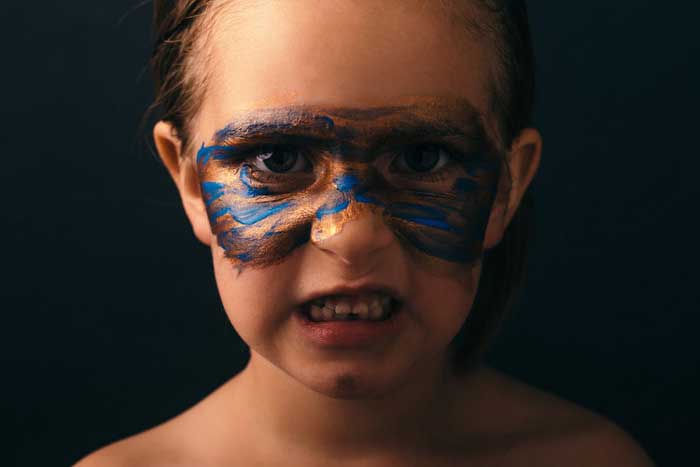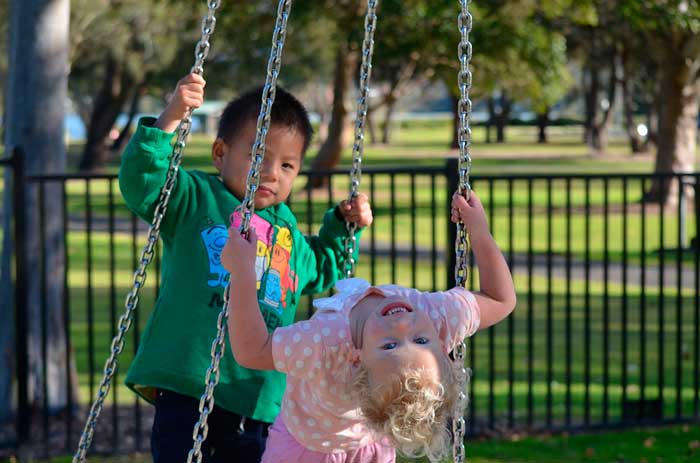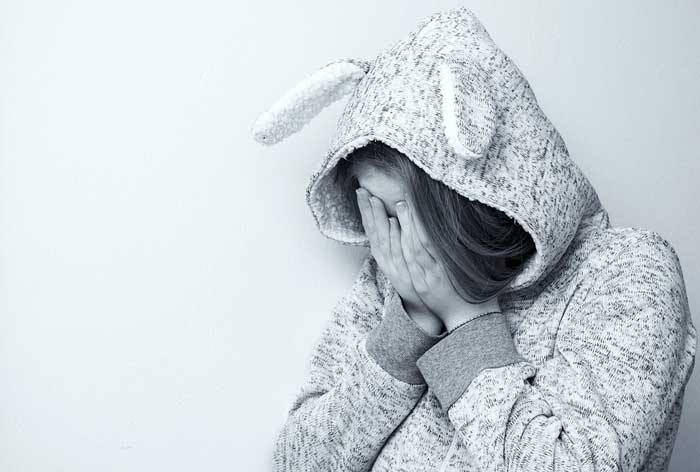Aggressive Kids – Reasons and Remedies
One may think children are too young to display aggressiveness – yet aggressive breakouts constitute a common part of kids’ everyday lives. They grab and throw things, punch other kids, kick and raise screaming hell. What makes them behave in this fashion?
Growing up is a hard proposition – a child has to learn all sorts of skills, both physical and mental; it often leads to frustration and despondency, and the child flares up if provoked by a playmate.
Children who recently started on preschool or daycare suddenly begin to spend much time out of the home. The new surroundings can make them feel neglected and defensive – and consequently ready to lash out at somebody who is irritating.
Even without these aggravating circumstances, the kid may be hungry or tired; if unsure how to express it, they can hit at somebody, bite or act up.
It doesn’t go for younger kids only; holding oneself well in hand is a problem with schoolchildren, too. They experience enough frustration when they feel their school performance suffers for various reasons, like the inability to concentrate properly. When things are going wrong in the family (a divorce, a death, an accident), feelings may grow beyond control.
Actually, reasons may be multiple, no matter what they are, the child will eventually learn to live with his or her anger and express it by using words, socially accepted behavior, and requests. The earlier we will make the kid understand that discussing the issue would lead to better results than shoving kids out of the way, the better.
How can aggressive breakouts in children be countered?
First, keep in mind that you are a living example for them. When you get angry, avoid hitting out, yelling, or accusing the child. Instead of enjoining him or her to behave decently, your example of maintaining control and using verbal means of expression will work much better. Remaining calm put the child gently out of the situation.
Then, as you see your kid growing angry, respond at once. It’s bad policy to let them repeat their kicks or yells hoping they will tire themselves out. Let them know at once that you react unfavorably to that kind of behavior.
If you can, it’s better to remove the little one outside the situation letting them take a time-out. Some five minutes would be enough for a younger one; in case of a schooler, you can react to excessive anger by denying them a privilege (less pocket money or gaming time). Make him or her realize that improper behavior and free expression of aggression lead to consequences, and they may find themselves having to do without things they like.
Support your attitude – show the same reaction to the kid’s aggression in every instance. You become predictable in your attitude, and thereby you subconsciously keep teaching him or her to recognize your pattern and, in the long run, they come to know that their behavior is subject to control. Mind that your kid can do something to bring you down before the onlookers – nevertheless, hold your ground. The people around you will side with you – they know what is going on and who is in the right…
Always discuss the situation with the kid when it is over and everybody is calm. Mind you do it not too long after the event when the details are erased from his or her memory – do it about an hour afterward. Question them about their reasons for attacking whoever they attacked. Let them explain how they were feeling at the time.
Let them know that getting angry is only human, everybody gets angry sometimes, but hitting, shoving, kicking is off limits. Tell them about alternative ways to express how mad they are: kick a ball around, hit a pillow, call in an adult who would settle the argument, and the simplest of all, telling their friend with whom they fell out, how mad they are and why.
A good idea for helping the kid hold his emotions in check is to give him a time-in, meaning that when you see an outburst, you take him to sit down together and stay quiet for a few moments. If it is okay, take his hand or embrace him. After he has quietened down a bit, get him to discuss the situation and explain how he could have behaved in a more proper fashion. Give him to understand that he is expected to acknowledge his emotions and turn them into another channel.
In addition, he will learn to turn away from situations that blow his top off and terminate irritating conversations instead of quarreling through them. If your kid is responsive, look around for books on the subject and peruse them together.
Don’t forget to celebrate their good behavior! So many parents are tricked into focusing on their child only when they are acting up. You need to give them praise for exemplary behavior when they share their toys with playmates or yield their turn at the swing. Tell them that you take pride in this kind of behavior because being able to control feelings brings good results than starting a rumpus. You can get a pack of bright stickers and mark in the calendar those days when the kid showed creditable patience.
Every outburst can be a lesson in responsibility. When your kid has been aggressive and it resulted in damage to other people’s belongings or messing up a room, he or she should be made to put things back in order. Toys must be put away to their rightful places, broken ones must be glued, overturned furniture placed back. This shouldn’t be explained as punishment, but a natural outcome of destructive anger, something that ought to be done in any case.
As early as it is possible the kid should be taught to say he is sorry after he has flown off the handle. You may have to begin with taking him to the kid he attacked and apologize for him. His own “sorries” will be less than sincere at first, but disregard it, the main thing is acquiring the habit.
Mind what he watches – unfortunately, a lot of cartoons and children’s videos contain yelling, fights, punching and rough stuff. You could do well to join him when he is watching or playing digital games and observe his reactions to what is happening on the screen. It might be connected with his outbursts. The American Academy of Pediatrics suggests that parents choose media for their children sifting out the aggressive ones, and allow children to spend not more than an hour watching cartoons. Watching videos with them and discussing the stories later is also advisable.
If you feel your kid does have problems with handling aggression, his anger flares up easily and frequently, it disrupts his school activities and games, if he attacks other children and adults repeatedly, don’t try to control it singlehanded. Seek professional help. Your child may need additional psychologic or psychiatric care from an expert. The feelings of frustration and irritation may indicate to behavior disorder that awaits diagnosing. Then again, the kid may be passing through emotional phase due to family problems – the fact that you may be unable to realize for yourself.
It can turn out that no professional interference is really necessary, yet a good counselor will do some good work for the kid, give you good advice and make you feel better for an in-depth discussion of your situation.




